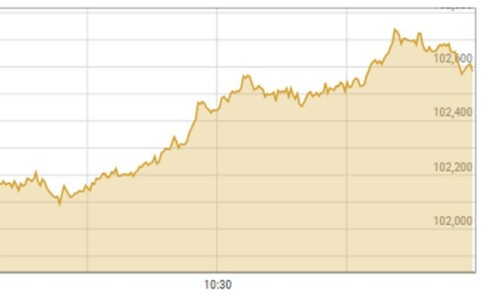
THE federal government is exploring the possibilities of selling surplus wheat to the Gulf countries. The Ministry of Food Security has asked the foreign office to lobby in the Gulf states for its proposals.
The target countries are Saudi Arabia, UAE, Qatar and Kuwait which import wheat mostly from the US and Canada. Since the Gulf countries do not produce wheat and other farm commodities and depend on imports, Pakistan could enter into bilateral agreements for export of staple food commodities possibly by offering competitive prices.
Pakistan’s food and agro-products exports touched $500m last year compared to $362.4m in 2012. Rice remains the leading food export item to the UAE and its sales jumped 11-fold to $207.8m compared to the last two years. Meat and processed frozen food exports crossed the $100m mark over the last three years. As for fruits and vegetables exports have almost doubled in three years.
Pakistan has not been able to export its surplus wheat stocks because of high domestic prices and low international rates. Now the fresh crop will start arriving in the market this month. The wheat procurement target for this season has been fixed at 6.95m tonnes against 6.6m tonnes in the previous year. Unless the federal government decides to resume payment of( required) level of subsidy, the wheat exports are unlikely to pick up pace in order to reduce the glut.
The wheat procurement target for this season has been fixed at 6.95m tonnes against 6.6m tonnes in the previous year
The country has pre-crop wheat stocks of 5.5m tonnes, according to the Pakistan Flour Mills Association (PFMA).
Indications are that the country will harvest a bumper wheat crop of over 25m tonnes this season. The crop will arrive in Sindh after March 10 and in Punjab after April 15. Bumper wheat crops in the three consecutive seasons have contributed to the glut.
In January 2015, the Economic Coordination Committee (ECC) of the Cabinet had approved a subsidy at the rate of $55 per tonne for Punjab and $45 per tonne for Sindh for three months on the export of 1.2m tonnes of wheat. The deadline was extended twice and finally it ended on Sept 30.
The ministries of food security and commerce have urged the finance ministry to extend the subsidy for wheat exports but the latter declined. The Sindh food department also approached the federation seeking continuation of the subsidy but to avail.
Wheat prices in the international market are currently around Rs2,200-2,300/100kg which hardly promises an attractive deal to exporters even after adding recent subsidy rate.. The Sindh government is supplying wheat to flour mills at Rs3,340/100kg bag.
Of late, there has been a growing demand from leading farmers, particularly in Punjab, for fixing support price of wheat at Rs1,500/40kg. The government, they say, did not take into account the global trends while raising the price to Rs1,300 in November 2014 from Rs1,200. But the food security ministry has opposed to any raise in the support price urging the ECC to maintain the rate at Rs1,300/40kg, saying any increase would pose more problems in a competing market.
The federal government has been considering different options to dispose of the unsold wheat stocks before the arrival of the new crop but could not reach a viable solution. The PFMA recently asked the Sindh government to bring down wheat prices to enable lower-class consumers to buy more flour, but its plea was ignored.
Afghanistan has been a regular importer of Pakistani wheat but India, finding Pakistan unable to compete, has made use of the opportunity by occupying the space vacated in the Afghan market by the neighbouring country. However, as a gesture of goodwill the Pakistan government donated a planeload of wheat to Afghanistan on October 30, 2015 to provide relief to the needy people as the country is facing food shortages.
Published in Dawn, Business & Finance weekly, March 7th, 2016













































